Liberating the forgotten music of the Holocaust
Songs written and performed in Nazi concentration camps were played for the first time in 73 years on Sunday at a magical concert in Jerusalem
Richard Ferrer has been editor of Jewish News since 2009. As one of Britain's leading Jewish voices he writes for The Times, Independent, New Statesman and many other titles. Richard previously worked at the Daily Mail, Daily Mirror, edited the Boston Jewish Advocate and created the Channel 4 TV series Jewish Mum Of The Year.
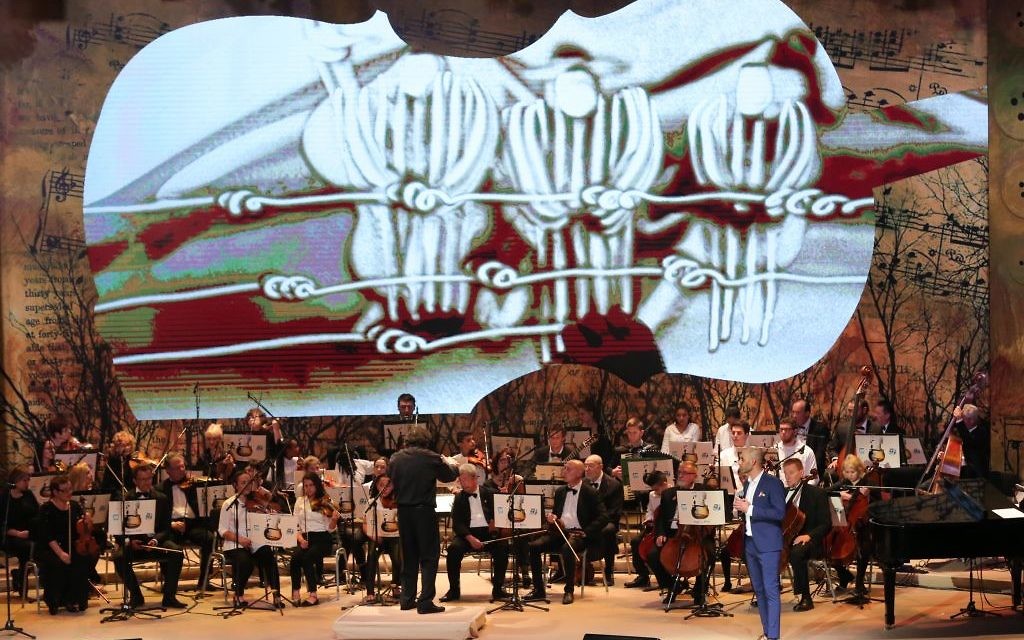
Mankind’s darkest hour is also, mercifully, one of its most documented.
Yad Vashem’s archive contains the names of four-and-a-half of the six million Jews murdered by the Nazis, along with thousands of testimonials – the vast majority given by those sadly no longer with us.
Today, almost 75 years after liberation, the survivors who remain were children in the camps, too young to accurately bear witness. Many simply recall a poem heard, a rhyme taught, a lullaby sung. They remember the music of the camps.
Get The Jewish News Daily Edition by email and never miss our top stories Free Sign Up
Yes, there were songs in hell. Thousands of them.
Italian composer Francesco Lotoro has spent the past two decades salvaging more than 8,000 pieces of music written during the Shoah.
His forensic search took him to museums, memorials, libraries and into the homes of survivors who remember the music being played, as well as tracking down relatives of those no longer around.
The 58-year-old discovered scores etched onto coal and wooden cutlery, scribbled on walls, doors and postcards. He found a five-act opera written on toilet paper.
He discovered love songs, marching songs, nursery rhymes and entire cabarets with full stage directions. He found music composed by Sufis, Baha’i, Roma and gypsy prisoners, but inevitably mostly Jews, written in Hebrew, Yiddish, German, Czech and Romani.
Francesco lovingly calls them “the great treasure”.
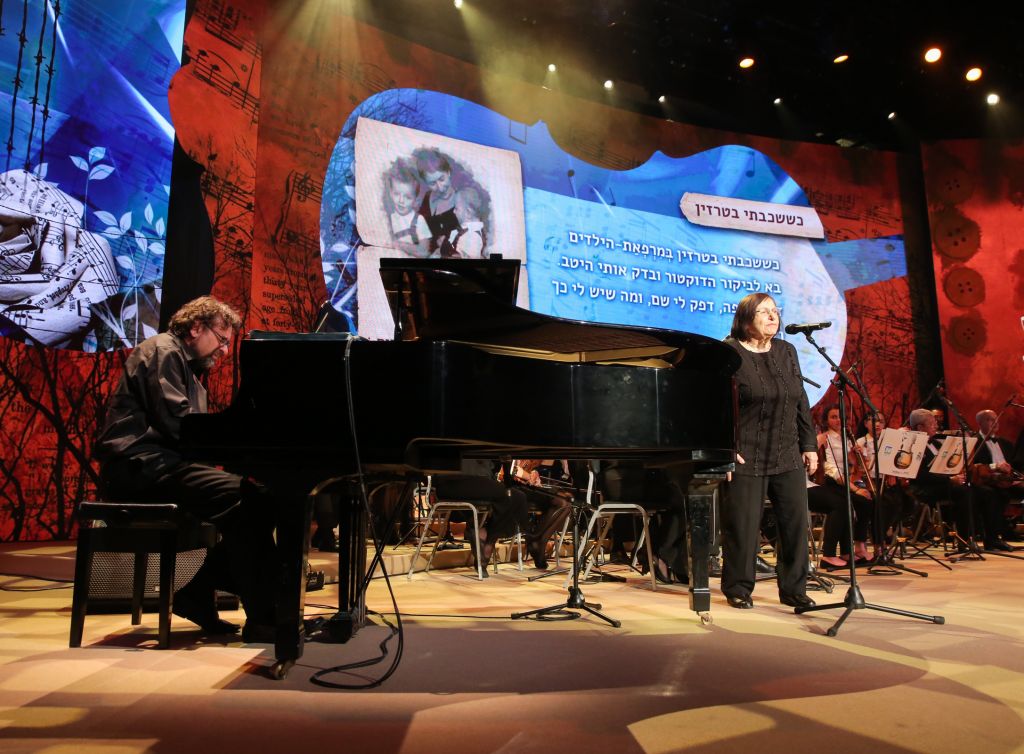
These musical memories remained silent for seven decades until last Sunday, when 11 of them were performed for the first time at JNF UK’s Notes of Hope concert in Jerusalem, as part of Israel’s 70th birthday celebrations.
“There was an explosion of creativity in the camps,” Francesco tells me in a thick Italian accent the night before the concert. “People wanted to be optimistic. They yearned for hope, even as they were surrounded by hunger and horror. Where there is death there is often more life.”
“If you take these musical scores to museums they will be treated as historical documents to be carefully filed away. But music lives in the air. This music needs to be liberated all over again.”
On stage 24 hours later, Francesco literally grasps the music from the air as he frenziedly conducts the Ashdod Symphony Orchestra and children from the Bikurim Performing Arts School in Eshkol and the Yerucham Conservatory. His arms flail, his eyes widen, his dark hair swishes back and forth.
He is in the room but elsewhere.
Each song cut into the soul. From the innocent refrain ‘Zitra’ (Tomorrow) composed by Joseph Roubicek for a young prisoner about looking forward to the day “everyone will be happy at heart”, to the woefully vivid ‘And The Music Is Playing’ by Walter Lindenbaum, with its dark lament…
“From the depth of hell… Music is pleasing, even the villain’s heart…They pound the rhythm on the food bowls, and instead of soup serve a tune extract. Even when exhausted they whistle restlessly, and the music is playing.”
And then Aviva Bar-On stepped on stage.
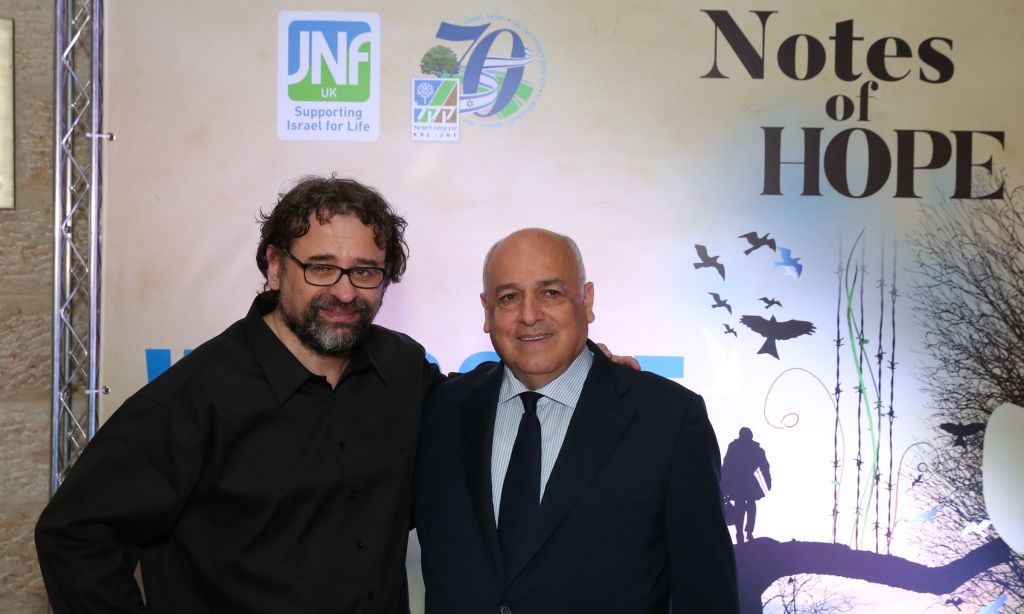
In 1943, Aviva was a scared little girl sent to the children’s clinic at Terezin, suffering with “terezinka” – a prisoner euphemism for diarrhoea. She was lovingly comforted back to health by a nurse called Ilse Weber, who made up a darkly amusing song to make the children smile called ‘When I Was Lying Down in Terezin’s Children’s Clinic:
“It’s terezinka, this is what you have. A nasty sickness – let’s shove a plug on it.”
When her husband was sent to Auschwitz in 1944, Ilse voluntarily transferred to the camp with their young son to keep the family together. She and her little boy were gassed on arrival.
Ilse’s song was never written or recorded. It stayed alive in Aviva’s mind. On Sunday, aged 85, she sung it in public, in front of 3,000 people, for the very first time.
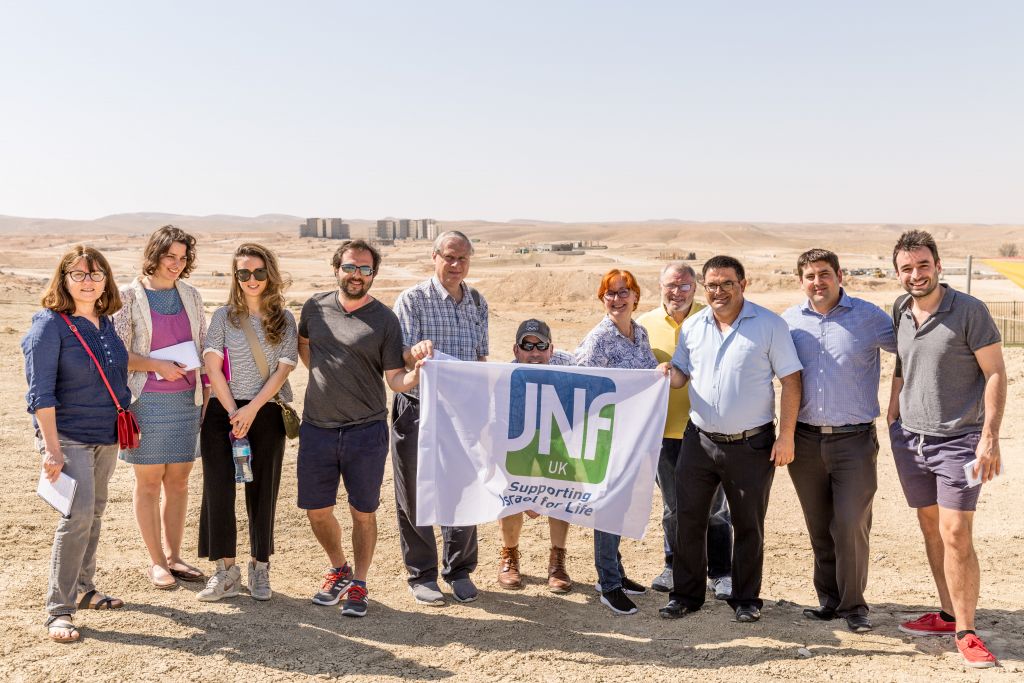
In the audience sat Alan Earlish, nephew of much-loved pre-war entertainer Max Erlich, whose long-lost music was also played.
Max starred in 40 pre-war films, alongside the likes of Marlene Dietrich. Imprisoned in Holland’s Westerbork transit camp, he ran a theatre group of actors, dancers, choreographers and musicians. They put on six major productions until the entire troupe was carted off to Auschwitz in 1944.
Alan tells me: “The camp commandant Conrad Geneker was stage-struck by all these showbiz celebrities. There was my uncle Max, Willy Rosen, Erich Ziegler, Franz Engel and many more. Suddenly the best cabaret in Europe was to be found in Westerbork. SS officers would come to watch in the front rows with the Jews sat behind them.
“They performed for their lives. A popular show might delay their departure to Auschwitz. Their songs became local hits, with inmates humming and whistling them as they worked.”
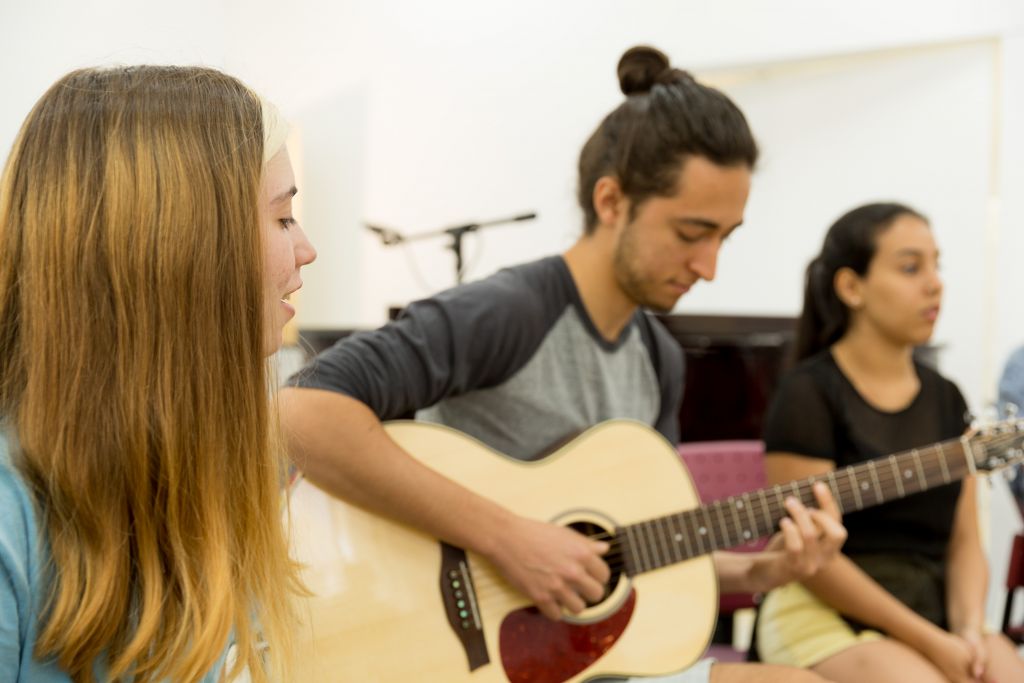
Max was put on the final transport to Auschwitz in September 1944.
Eyewitnesses recount he was recognised on arrival and forced to perform at gunpoint before being led to the gas chambers alongside many of his fellow Westerbork “celebrities”. He was 51.
Francesco has so far made 20 trips around the world to revive the music of the camps. He plans to make 80 more before 2020, before holding a concert in Auschwitz to mark the 75th anniversary of liberation. There were seven orchestras in Auschwitz. Each played hundreds, if not thousands, of songs. He has a busy two years ahead.
“I would like this event and future ones to show that what was lost can be rebuilt and celebrated,” he reflects the morning after the concert. “Hearing the children perform the music of the camps gives them a powerful connection to the past. Now the music belongs to them. Handing it to them feels like a mitzvah. This can be a new beginning.”

Thank you for helping to make Jewish News the leading source of news and opinion for the UK Jewish community. Today we're asking for your invaluable help to continue putting our community first in everything we do.
For as little as £5 a month you can help sustain the vital work we do in celebrating and standing up for Jewish life in Britain.
Jewish News holds our community together and keeps us connected. Like a synagogue, it’s where people turn to feel part of something bigger. It also proudly shows the rest of Britain the vibrancy and rich culture of modern Jewish life.
You can make a quick and easy one-off or monthly contribution of £5, £10, £20 or any other sum you’re comfortable with.
100% of your donation will help us continue celebrating our community, in all its dynamic diversity...
Engaging
Being a community platform means so much more than producing a newspaper and website. One of our proudest roles is media partnering with our invaluable charities to amplify the outstanding work they do to help us all.
Celebrating
There’s no shortage of oys in the world but Jewish News takes every opportunity to celebrate the joys too, through projects like Night of Heroes, 40 Under 40 and other compelling countdowns that make the community kvell with pride.
Pioneering
In the first collaboration between media outlets from different faiths, Jewish News worked with British Muslim TV and Church Times to produce a list of young activists leading the way on interfaith understanding.
Campaigning
Royal Mail issued a stamp honouring Holocaust hero Sir Nicholas Winton after a Jewish News campaign attracted more than 100,000 backers. Jewish Newsalso produces special editions of the paper highlighting pressing issues including mental health and Holocaust remembrance.
Easy access
In an age when news is readily accessible, Jewish News provides high-quality content free online and offline, removing any financial barriers to connecting people.
Voice of our community to wider society
The Jewish News team regularly appears on TV, radio and on the pages of the national press to comment on stories about the Jewish community. Easy access to the paper on the streets of London also means Jewish News provides an invaluable window into the community for the country at large.
We hope you agree all this is worth preserving.
-
By Brigit Grant
-
By Laurent Vaughan - Senior Associate (Bishop & Sewell Solicitors)
-
By Laurent Vaughan - Senior Associate (Bishop & Sewell Solicitors)
-
By Laurent Vaughan - Senior Associate (Bishop & Sewell Solicitors)
-
By Laurent Vaughan - Senior Associate (Bishop & Sewell Solicitors)





















